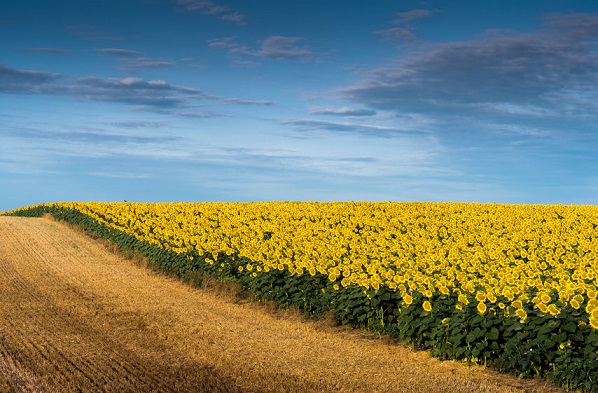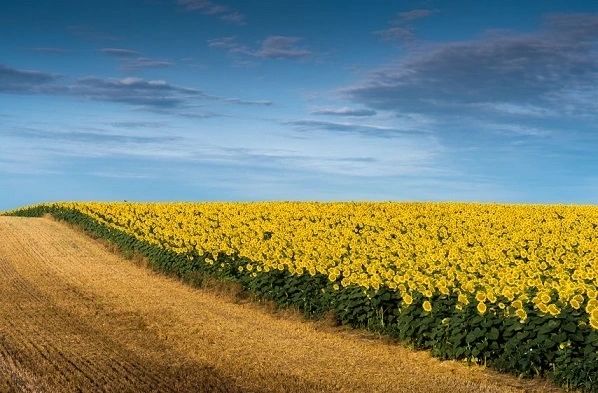BuySellBA
Administrator
Current situation and prospects of the rural real estate market - Reporte Inmobiliario

Source:

Situación actual y perspectivas del mercado inmobiliario rural , noticias sobre CAMPOS en Reporte Inmobiliario
Situación actual, proyecciones y análisis de la repercusión de las acciones del nuevo gobierno elaborado por CAIR
January 17, 2024
Current situation and prospects of the rural real estate market

Current situation, projections and analysis of the impact of the new government's actions prepared by CAIR
The Board of Directors of the Argentine Chamber of Rural Real Estate Companies prepared the following report that summarizes its analysis of the situation and prospects of the market that is of interest to investors and members of the agricultural sector in general.
Introduction
“This semester had as its starting point, nothing more and nothing less, than the opportunity for citizens to choose continuity or change. Clearly the latter was chosen. And within the search for a change, evidently a drastic turn was aimed at in every sense. They voted for a libertarian, nonpartisan, with little political experience like Milei and by a wide margin.The figure of the new president clearly represents that of an outsider who comes to power to make profound changes.
Young people were decisive in this election and this can be interpreted as a positive and encouraging sign. Firstly, because they feel that the new generations are involved in the destiny of their country; On the other hand, expressing a total disbelief in the old politicians and also in the “old politics”, encouraging oneself to “kick the board” and play for something definitely different. With uncertain results, it is true, but with the dose of courage and unconsciousness that youth grants.
With the cards drawn, at the beginning of the new management and the year almost closing, it could be said that, in a very important part of the population, the feeling is one of optimism. The markets welcomed the new authorities and responded favorably to the first measures. Although it is too early to draw conclusions, one can sense that there is cautious and contained optimism.
How did the rural real estate market react after the election of the new president? For now, the first message that can be gathered is positive. Clearly, expectations and needs for change remained.
This is also added to the fact that during 2023, even though it is an election year, more activity could be seen than in other election years. Obviously, the causes may be due to different factors, but in general terms, there was a bet by investors to look and choose to put their money in Argentina without knowing who would be the next president.
Land values had already been falling since 2013, accentuated during the pandemic (2020), to begin to slow the decline process in mid-2022. The decrease in values had a favorable impact on the profitability of the agricultural operation.
Also, the fears that were generated due to the falls of some banks such as Credit Suisse, Silicon Valley, had their influence, added to some other rumors of the fall of another entity. These situations are extremely sensitive for investors whose natural and immediate reaction is to begin to redirect their capital into tangible assets such as land.
South America, with all the problems it has, continues to be a viable alternative and within South America, Argentina seems to continue being the “pretty girl”, not so much because it lacks problems but rather because of its wealth of resources, both agricultural and human, which provides necessary conditions to recover. It won't take long to know if you have enough resilience to get out of this adversity.
Clearly, we are about to begin one of the most uncertain years in recent decades. There are reasons to be optimistic, we will also have to be cautious and pay close attention to the market, being aware of how difficult the road will be. So far, the first and incipient signals sent by the market have been positive.
Situation in the Argentine Republic
The country is placed in a position of risk for the investor and for this reason, he demands a higher income, since it seems to be even today risky to invest in land in Argentina. The opportunity cost is beneficial if we compare it with the values of other countries.These asymmetries in land values, in the long or short term, are arbitrated and recover their historical relationship as soon as countries correct their errors. The investor, faced with this probable change in the economy that could insert it into the world, is attentive and looking at Argentina.
But it's one thing to look and another to invest. The country has to give conclusive proof that this direction is different and that it is here to stay. As long as this does not happen, the investor will be attentive and will continue to carefully analyze his investment.
The problems and the rural real estate market
At the moment, two problems are seen that are pressing and need urgent treatment: insecurity and very high inflation , the latter driving poverty and unrest in sectors that have lost their purchasing power. The challenge is how radicalized positions or actions are channeled and avoided, minimizing the damage they cause. As long as this is not controlled and a stable economy is returned, it is difficult for an investor to understand inflation of 30% monthly.At the agricultural level itself, the rise in commodities and the expectations that these values will be maintained with good demand is very good news for agricultural fields. The bad news is that withholdings on many agricultural products were once again increased.
Livestock farming, with lower expectations, maintains demand and China, after a period of retraction in imports, returned to the meat market, giving it greater price sustainability. While the demand for meat continued with a tendency towards greater consumption, it was suddenly stopped by the last large increase in mid-December, and which was reversed by the end of the year due to the non-validation of prices in the shelves, clearly due to the low purchasing power of the consumer.
However, the rural real estate market was more active for agricultural fields, and with lower demand for mixed and livestock fields. And when we say more active it refers to the comparison with previous years that were not good years for this market. The less productive fields are still waiting for their moment for development, special plans or tax treatment with promotion and/or exception zones, which will not appear in the short term.
Reviewing what happened, we must remember events that marked the behavior of the market and the main causes.
The drought directly affected the economic and political climate. There was a significantly smaller harvest of wheat, corn and soybeans. It was the worst year in recent decades, the decrease in income impacted the functioning of the countryside and Argentina in general, giving complete examples of our country's need for income from agricultural origin.
The drought seemed to end gradually. Given the time of year we must say that the wheat and barley campaign was reasonable, it has not yet ended in the southeast, but what makes the difference and the exportable balances is the thick harvest that is still in development.
From an economic point of view, the field remains without financing; The stock silos are the savings banks of the farmers and the retention of bellies, for those who can, are the savings banks of the ranchers.
On the other hand, it is warned that increasing tax pressure is unfeasible, it would only bring non-compliance and greater difficulties.
Political uncertainty was present almost all year until certain expectations of change appeared that began to energize the market, which were validated with the election of the new government.
It seems that our country once again has another opportunity to get back on its feet. It will not be easy, on the contrary, it will involve enormous sacrifices in the medium and long term. But in this context the land will have a leading role. Even more so when there is a promise (unfulfilled until now) to begin lowering withholdings.
The repeal of the land law
It is very important for the activity that it has been included in the DNU. Legally today it is repealed.But not because of the mere repeal, investors will come, they will come when Argentina comes into their sights for its legal security, economic security, stability and a free exchange system. That is, this will only happen when Argentina is a country that meets the conditions to invest.
Situation of the Rural Real Estate Market
Buy and sell
In the first semester there were more movements and greater inquiries, visits, along with low offers that many of them did not come to fruition.During the second half of the year, offers were closer to what was intended and more operations were completed. Consultations and reviews continued, so we should expect that after the holiday period the market will be more active.
The rhythm was; first an increase in queries, then a greater number of specific requests from investors, greater visits, firm and clear requests from investors, a short/medium negotiation and finally a completed operation.
In short, we are facing an active market, with balanced supply and demand, slightly with greater demand and little supply for very good quality agricultural fields, as always happens and will happen, and a certain balance for mixed fields and a greater supply or oversupply for livestock fields.
These market characteristics cannot be extended and equal for all of Argentina; for less productive fields or those with little structure, their sale is more complex. We will have to think about tighter values, terms and different payment methods.
Rentals – Leases
Agricultural rentals in this second semester are scarce and casual, everything happens in the first semester.The little that was done continued with the trend of the first semester with very good or good agricultural fields in high demand and with firm prices.
Demand remained high, sustained and strong for agricultural fields; and increasingly firm for livestock fields in all productive areas to the point of being able to assert that, in this campaign, it was dissatisfied for the second consecutive year.
As is market logic, this situation has produced an increase in the value of agricultural rentals, which was supposed to find a balance for the current campaign, but this did not happen, but rather the increase in values continued, although to a lesser extent. during this second semester around 5 or 10 percent.
The “soybean dollar program”, in addition to the conflict generated by the rule for payment of leases, marks the dependence of a country on the agricultural sector.
Regarding the sector, the dynamics are absolutely different from buying and selling. The simple fact that it is a peso-taking activity means that any surplus is immediately poured into agricultural production, both towards agriculture and livestock, activities that never stopped despite so many vicissitudes.
Summary - taking into account everything expressed
• Without a doubt, this second period of 2023 analyzed has been the best in recent semesters.• In recent months the market began a slow but sustained recovery of activity.
• The existence of pesos in the market and their difficult protection in the face of high inflation rates led to a large part of them being used to rent agricultural and livestock fields. The demand remained unsatisfied. That's also good news.
• The opportunity for agricultural growth is intact, international prices, the land's production capacity, the modern genetics used, the professionals in the sector and/or the rural people, who know the land so much and so well, They constitute a unique virtuous circle.
• That is why we believe that we can produce more, better and enlarge agricultural and livestock Argentina. This situation should not be wasted, especially having the certainty that a large part of the dollars that agriculture produces generate a reinvestment capacity that boosts the economy in general.
• As we have been stating in previous reports, our country has the capacity to generate food to supply external markets. With clear rules and maintaining them in the medium term, without suffocating the sector, agricultural production in general will continue to grow, including regional economies.”
www.buysellba.com

